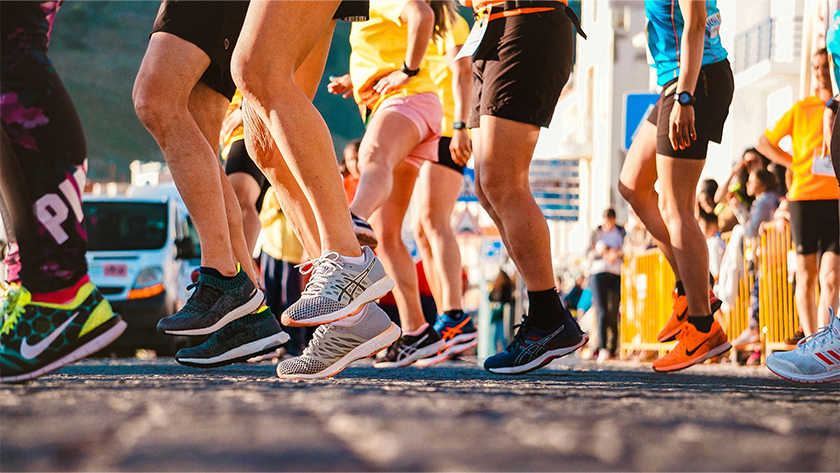
Can Athlete’s Foot Cause Nail Fungus? Understanding the Connection and Prevention Tips
Nail fungus and athlete’s foot are both caused by similar types of fungi, primarily dermatophytes like Trichophyton rubrum. When athlete’s foot is left untreated or spreads beyond the skin, the fungus can easily enter the nails through small cracks or cuts. Once the fungus reaches the nail bed, it begins to multiply and can lead to a fungal nail infection. This process is especially common with toenails, which are frequently exposed to the same conditions that promote athlete’s foot.
Signs of Fungal Nail Infections
When athlete’s foot spreads to the nails, it can cause a range of symptoms. Here’s what to watch for:
- Discoloration: The nail may turn yellow, white, or brown, often starting as small spots that expand over time.
- Thickening: Infected nails may become thicker than normal, making them hard to trim.
- Brittle Texture: Nails may become crumbly or break off easily.
- Nail Separation: In severe cases, the nail may detach from the nail bed, creating a gap that can trap dirt and bacteria.
Why Athlete’s Foot and Nail Fungus are Common in Active People
Active people, particularly athletes, are more prone to developing both athlete’s foot and nail fungus. This is because fungi thrive in warm, damp environments—conditions often found in sweaty socks, closed-toe shoes, and locker rooms. Walking barefoot in communal areas, such as gyms and pools, can further increase the risk of contracting fungi that cause these infections.
How to Prevent Athlete’s Foot from Causing Nail Fungus
Preventing the spread of athlete’s foot to the nails is essential for maintaining foot health. Here are some steps to help reduce the risk:
- Keep Feet Clean and Dry: Wash feet daily with soap and water, dry thoroughly, and keep them dry throughout the day with a deo spray especially between the toes.
- Wear Breathable Footwear: Opt for shoes made of materials that allow air circulation and reduce moisture buildup.
- Change Socks Regularly: Moisture-wicking socks can help keep feet dry. Changing socks during the day if your feet get sweaty can also help prevent fungal growth.
- Avoid Walking Barefoot in Public Areas: Communal showers, locker rooms, and pool areas are breeding grounds for fungi. Wearing flip-flops or shower shoes can help reduce the risk of athlete’s foot and nail fungus.
- Disinfect Shoes and Socks: Fungi can survive in shoes and socks, so washing and drying them thoroughly can help reduce the chance of reinfection. The Shoe & Sock Spray is a good remedie to disinfect the shoes and socks.
- Use Antifungal Products: The Athletes Foot will heal the athletes foot and prevent it from spreading to the nails. When the nails are already infected, the Nail Mycosis will heal the nail fungus, with visible results within 2-4 weeks.
Treating Athlete’s Foot and Nail Fungus
If you suspect athlete’s foot has spread to your nails, it’s important to seek treatment as early as possible.
Why It’s Important to Address Athlete’s Foot Early
Athlete’s foot and nail fungus can become persistent if left untreated. Nail fungus, in particular, is challenging to eliminate once it takes hold. By addressing athlete’s foot at the first sign of symptoms, you can reduce the chance of the infection spreading to your nails and worsening.
Final Thoughts
Athlete’s foot and nail fungus are closely related conditions, both caused by fungi that thrive in moist environments. If you’ve experienced athlete’s foot and notice changes in your toenails, there’s a chance the infection has spread. Preventative measures like keeping feet clean and dry, wearing breathable footwear, and using antifungal products can go a long way in stopping athlete’s foot from leading to nail fungus.






